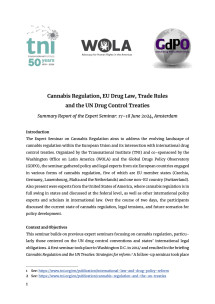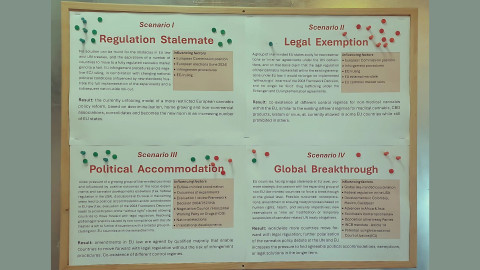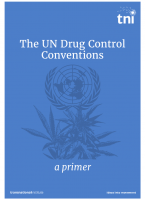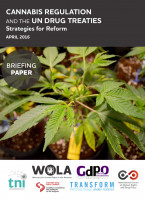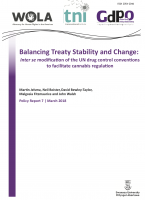The Expert Seminar on Cannabis Regulation aimed to address the evolving landscape of cannabis regulation within the European Union and its intersection with international drug control treaties. Organized by the Transnational Institute (TNI) and co-sponsored by the Washington Office on Latin America (WOLA) and the Global Drugs Policy Observatory (GDPO), the seminar gathered policy and legal experts from six European countries engaged in various forms of cannabis regulation, five of which are EU member states (Czechia, Germany, Luxembourg, Malta and the Netherlands) and one non-EU country (Switzerland). Also present were experts from the United States of America, where cannabis regulation is in full swing in states and discussed at the federal level, as well as other international policy experts and scholars in international law. Over the course of two days, the participants discussed the current state of cannabis regulation, legal tensions, and future scenarios for policy development.
This seminar builds on previous expert seminars focusing on cannabis regulation, particularly those centered on the UN drug control conventions and states’ international legal obligations. A first seminar took place in Washington D.C. in 2014, and resulted in the briefing Cannabis Regulation and the UN Treaties: Strategies for reform. A follow-up seminar took place in Amsterdam in 2017. The main outcome of that seminar were a publication on the inter se modification of the UN drug control conventions to facilitate cannabis regulation and a Special Issue of International Community Law Review. These seminars and publications all happened before the recent ‘green wave’ of cannabis reforms reached Europe. This shift necessitates a renewed focus on the EU’s role and the implications of these changes on international treaties, EU legislation and institutions, and their impact on national legal regulations.
In light of this, it is important to find legal solutions and coordinate efforts among European countries experimenting with cannabis regulation. While there seems to be little political appetite for formal changes to the treaty system, countries are increasingly adopting creative interpretations and justifications for non-compliance with the international drug treaties. This seminar offered a space to explore these approaches and address the resulting legal tensions, particularly those involving EU law and the legal room for maneuver for its member states.
In light of this, it is important to find legal solutions and coordinate efforts among European countries experimenting with cannabis regulation. While there seems to be little political appetite for formal changes to the treaty system, countries are increasingly adopting creative interpretations and justifications for non-compliance with the international drug treaties. This seminar offered a space to explore these approaches and address the resulting legal tensions, particularly those involving EU law and the legal room for maneuver for its member states.
